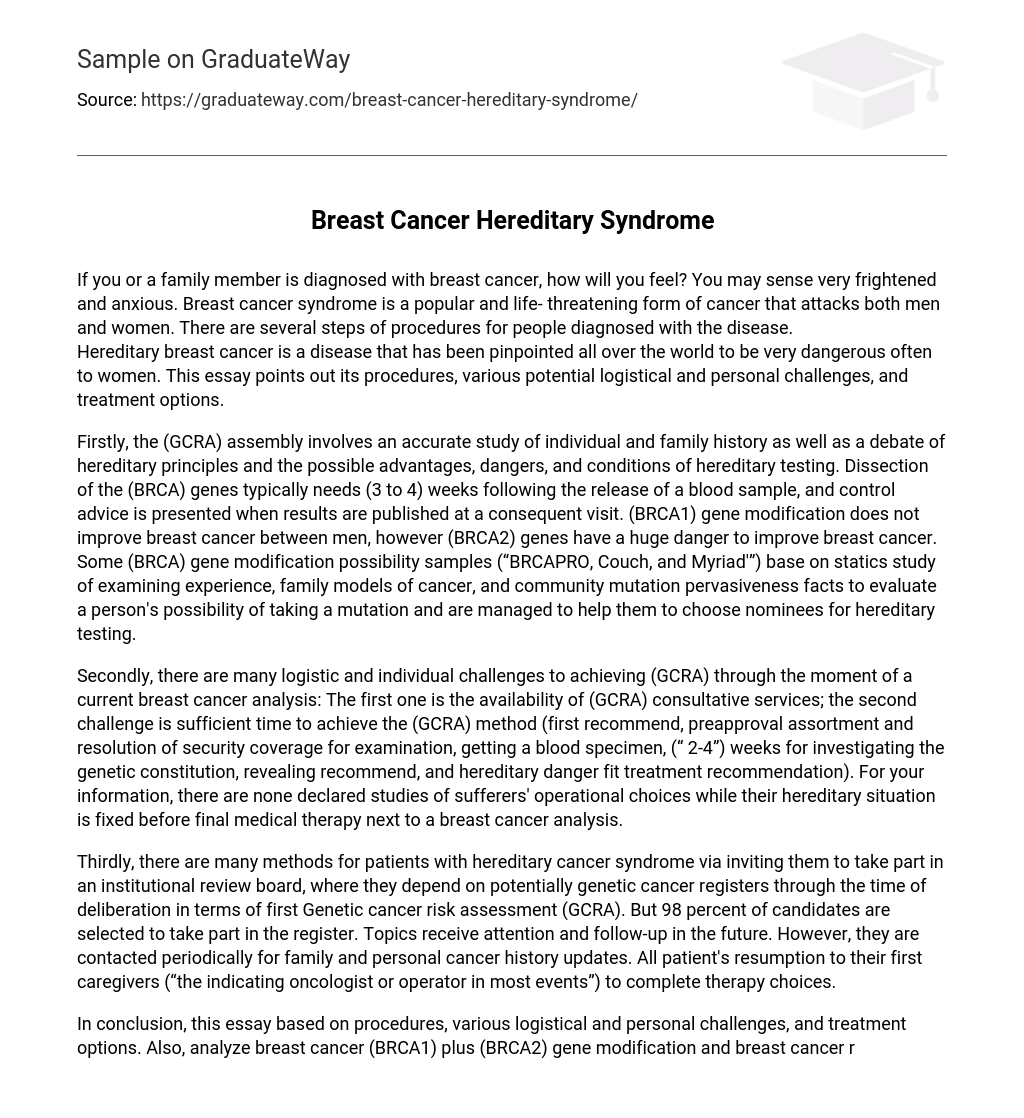If you or a family member is diagnosed with breast cancer, how will you feel? You may sense very frightened and anxious. Breast cancer syndrome is a popular and life- threatening form of cancer that attacks both men and women. There are several steps of procedures for people diagnosed with the disease. Hereditary breast cancer is a disease that has been pinpointed all over the world to be very dangerous often to women. This essay points out its procedures, various potential logistical and personal challenges, and treatment options.
Firstly, the (GCRA) assembly involves an accurate study of individual and family history as well as a debate of hereditary principles and the possible advantages, dangers, and conditions of hereditary testing. Dissection of the (BRCA) genes typically needs (3 to 4) weeks following the release of a blood sample, and control advice is presented when results are published at a consequent visit. (BRCA1) gene modification does not improve breast cancer between men, however (BRCA2) genes have a huge danger to improve breast cancer. Some (BRCA) gene modification possibility samples (“BRCAPRO, Couch, and Myriad’”) base on statics study of examining experience, family models of cancer, and community mutation pervasiveness facts to evaluate a person’s possibility of taking a mutation and are managed to help them to choose nominees for hereditary testing.
Secondly, there are many logistic and individual challenges to achieving (GCRA) through the moment of a current breast cancer analysis: The first one is the availability of (GCRA) consultative services; the second challenge is sufficient time to achieve the (GCRA) method (first recommend, preapproval assortment and resolution of security coverage for examination, getting a blood specimen, (“ 2-4”) weeks for investigating the genetic constitution, revealing recommend, and hereditary danger fit treatment recommendation). For your information, there are none declared studies of sufferers’ operational choices while their hereditary situation is fixed before final medical therapy next to a breast cancer analysis.
Thirdly, there are many methods for patients with hereditary cancer syndrome via inviting them to take part in an institutional review board, where they depend on potentially genetic cancer registers through the time of deliberation in terms of first Genetic cancer risk assessment (GCRA). But 98 percent of candidates are selected to take part in the register. Topics receive attention and follow-up in the future. However, they are contacted periodically for family and personal cancer history updates. All patient’s resumption to their first caregivers (“the indicating oncologist or operator in most events”) to complete therapy choices.
In conclusion, this essay based on procedures, various logistical and personal challenges, and treatment options. Also, analyze breast cancer (BRCA1) plus (BRCA2) gene modification and breast cancer risk. Finally, explaining two main challenges, as well as managed family archives to demonstrate breast cancer.





